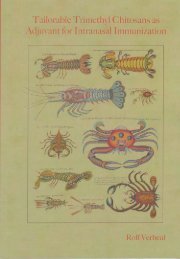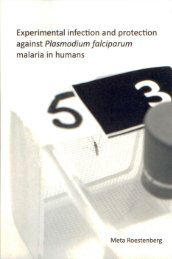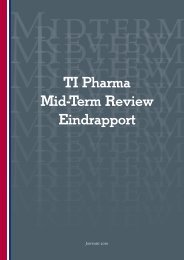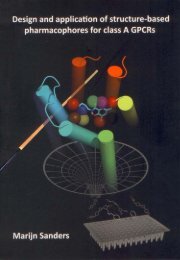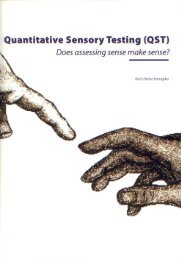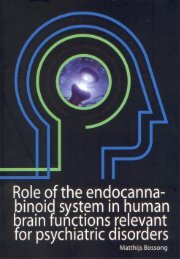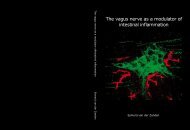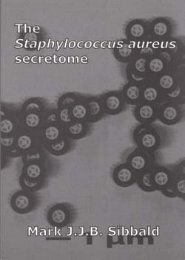Chromosome segregation errors: a double-edged sword - TI Pharma
Chromosome segregation errors: a double-edged sword - TI Pharma
Chromosome segregation errors: a double-edged sword - TI Pharma
Create successful ePaper yourself
Turn your PDF publications into a flip-book with our unique Google optimized e-Paper software.
4<br />
of checkpoint function can be achieved in clinical settings. Nonetheless, partial inhibition of mitotic<br />
checkpoint function combined with an approach that perturbs proper chromosome alignment<br />
could enhance chromosome <strong>segregation</strong> <strong>errors</strong> above the threshold required to kill tumor cells.<br />
In line with this, work from our own lab has shown that partial mitotic checkpoint inhibition in<br />
combination with sub-lethal doses of paclitaxel can produce a synergistic effect in tumor cell<br />
death that is not observed in non-transformed cells 299 (Fig.3). Inhibition of centrosome clustering,<br />
as mentioned above, could be another approach to enhance chromosome <strong>segregation</strong> <strong>errors</strong> in<br />
CIN cells harboring multiple centrosomes (Fig.2). The multipolarity resulting from this strategy<br />
82<br />
A) Mitotic exit without inhibitors<br />
Normal cells CIN tumor cells<br />
B) Mitotic exit + (partial) Mitotic checkpoint inhibition + chromosome misalignments<br />
Normal cells CIN tumor cells<br />
Diploid offspring Aneuploid offspring<br />
Normal<br />
cell cycle progression<br />
M<br />
G1<br />
G2<br />
S<br />
Tumorigenesis Cell cycle<br />
arrest<br />
STOP<br />
Cell death<br />
Severely aneuploid offspring<br />
Cell death<br />
Figure 3. Model for mitotic checkpoint inhibition as a specific anti-CIN cancer strategy<br />
A) Chromosomally unstable (CIN) tumor cells often missegregate chromosomes upon mitotic exit when compared to healthy<br />
proliferating cells. B) Enhancing chromosome alignment defects in combination with (partial) mitotic checkpoint inhibition will<br />
result in severe chromosome mis<strong>segregation</strong>s in CIN tumor cells and promote cell death. In contrast, in normal healthy cells (partial)<br />
mitotic checkpoint inhibition can lead to two alternative outcomes: the cell division is unaffected and cells exit mitosis normally,<br />
resulting in healthy diploid daughter cells, or aneuploid progeny is produced. This progeny has a high probability to either arrest or<br />
die. Some aneuploid daughter cells could escape the cell cycle arrest and might eventually become tumorigenic.



